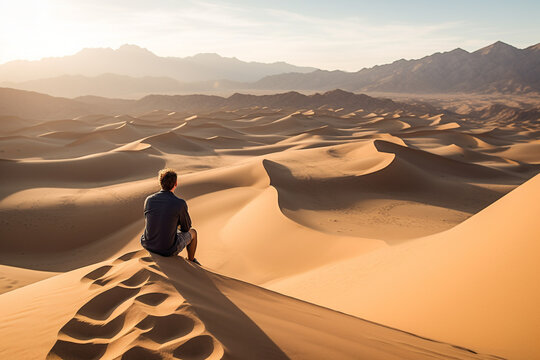Casting Aside Distractions And Looking To Jesus
Rev. Marcel Divine Emeka Okwara, CSsR
Homily for the Second Sunday of Advent, Year C
Church of St. Bridget of Minneapolis, MN
Sunday, December 8, 2024
The three biblical figures that demonstrate in different ways the spirit of Advent are Isaiah, the Blessed Mother Mary and John the Baptist. Today, let’s reflect upon John for today’s Gospel passage is actually about him. John the Baptist was the last of the prophets of Israel. Concerning him, Jesus says: “Amen, I say to you, among those born of women there has been none greater than John the Baptist…” (Matthew 11:11). That means that he was the greatest of the prophets. Why did God send John and many other prophets before Christ? To prepare the way, the historical way, for Christ to plant his roots in history.
John made his first public appearance in the desert. Many great figures in the Bible spent some time in the desert. Jesus himself was also in the desert. But what took these great figures to the desert? Desert is not a pretty place; there is nothing fun and pleasant about being there. We have the Desert Fathers who consciously moved into the deserts. Why? It was Blaise Pascal, the great French philosopher and mathematician who gave us the best explanation. He said that most of us, most of the time, divert ourselves, distract ourselves from attending to the great questions about God, about life, about the meaning of death, about sin, about grace and all the other great questions. To avoid paying attention to those great questions, we engage in what Blaise Pascal called in his French “divertissements,” diversions. Pascal himself, who was a very brilliant man, spent way too much of his life engaging in diversions. His main distraction was gambling. He gambled a lot. And many of us engage in one diversion or the other. We distract ourselves from these probing, intrusive, morally and spiritually challenging questions. What is the cure for these diversions and distractions? The deserts! They are places with no distractions at all. There in the deserts, there is nothing to distract us from paying focused attention to the great questions we have been running away from. It is in the desert that John the Baptist meets us. Although not on the same level as Lent, Advent is meant to be a desert time to put all our distractions aside and intentionally ask the great questions like “How do I stand with God?” “Is the worship of God the “numero uno” in my life? Where is my life now? On top of the mountain, the place of intense encounter with God? Last week, during the daily Mass I said in my homily that the Church exists primarily to do three things: to worship God, to evangelize and to care for the poor. Are those still my top priority? We are worried about many things. We are worried about jobs, family, sports (your team winning), entertainment, traveling, politics, power, health etc. Don’t get me wrong. Those are important, but each of them can be your ultimate “divertissements” distractions. But in this season of Advent, the Church invites us to go into deserts and meet John the Baptist there, and attend to these great questions we have been avoiding.
What is the theme of John the Baptist? Repent! Reform! From today’s Gospel (Luke 3:1-6), we hear “John went throughout the whole region of the Jordan, proclaiming a baptism of repentance for the forgiveness of sins.” Jesus repeats that too. In his inaugural address in the Gospel of Mark Jesus says “repent!” “Metanoeite” in Greek, which means “Go beyond the mind you have.” Change your way of thinking; change your way of seeing; change your way of perception; change the way you see the world; change the way you view power, wealth, honor and pleasure. To all of us sinners, John says, change. Change your mind, change your mentality, change your attitude towards God, others, the Church, the sacraments, the poor. Why is this change crucially important? Because the reign of God is at hand. Don’t ask me “What’s the reign of God?” That’s a wrong question. The right question is, “Who is the reign of God?” John the Baptist is not pointing to somewhere. He is not pointing exactly to a new state of affairs, not an idea, not a new political movement, not even a religious reform. He is directing his audience towards someone that Origen called the “autobasileia,” the kingdom in person. In Jesus of Nazareth, divinity and humanity have met. In Jesus, heaven and earth have embraced. In Jesus, God has visited his people. In Jesus, the will of God is done on earth as it is in heaven. In Jesus, a new way of being has appeared.
Because a new way of being has come, John the Baptist invites his audience and people up and down the centuries to leave their “divertissements,” their distractions, to repent, to wake up, “to prepare the way of the Lord, and make his paths straight” (Luke 3:4b). You know, for two thousand years, that has been the central message of the Church. In many cultures across the centuries, and in many languages, that’s what the Church has been saying: repent, change your mind, open your eyes to see Jesus who is coming to you in different ways. This is Advent, sisters and brothers. Go into the desert. Cast aside your distractions, and look at Jesus. It is upon him, the Father, God has set his seal (John 6:27b).
God bless you!




No comments:
Post a Comment